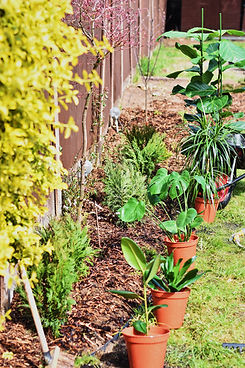
WHAT TO DO
IN CASE OF FIRE
OR EVACUATION
SO YOU MIGHT BE EVACUATED. NOW WHAT?
Elizabeth Rico, Arizona Farm Bureau Outreach Manager
In Arizona, fire season means that in rural areas, especially where properties back up to BLM or National Forest, are at high risk of having a fast-moving, dangerous wildfire on your doorstep. Being prepared before disaster strikes means you can evacuate quickly, safely and in an organized manner. Here are some tips and items to consider before you have to leave your home, that will make packing your family, pets and belongs much more efficient.
-
Have at least ½ tank of fuel in your vehicles at all times
-
Pack a ‘Go Bag’ with toiletries, spare clothes, phone chargers, blankets and pillows and other items of comfort to grab quickly and pack in your vehicle for each member of your household.
-
Make a list of medications and have a bag ready to pack those if needed. The list will ensure that nothing essential is left behind, especially when packing those medications ahead of time is not practical.
-
Take videos of the contents of your home and include items you cannot pack up with you. Include any items of value, large or bulky items, or other things you may not have listed on your insurance policy that you will potentially claim if lost.
-
Have a plan to round up your pets. Include their food and drinking items, leashes, carriers or other ways of securing small pets. Make prior arrangements with family, friends or neighbors if you need additional help loading or transporting for your pets or belongings.
-
Have important documents (Social Security cards, birth and marriage certificates, homeowners/auto/life insurance policies, photos or legal documents) in a convenient place together, ready to bring with you or store in your ‘Go Bag’.
-
If you have enough room, consider packing camping or picnic supplies if you are unsure of where you will be evacuating to.
-
Close all windows and interior doors and windows. Turn off the gas to your home and remove propane tanks from BBQ grills and store in a bunker, or far away from your home if you cannot bring it with you.
-
Make a list of who is living in your home, and where you are evacuating to, and contact information if possible-and hang on your front door in the event of being evacuated. This ensures that fire crews know the home is empty, and everyone is accounted for and where to find you if they need to.
-
Know where you will bring large pets or livestock-and make a plan. Find out what local agencies are available to take your animals, and how you will transport them to those locations-and enlist the help of friends or family if needed.
Some resources to utilize are:
- Yavapai County Sheriff’s Emergency Notification System - http://www.ycsoaz.gov/community/emergency-preparedness/ens/
-
AZ Interagency Dispatch Center (for State and Private Land Lessees) 800-309-7081
-
Arizona Farm Bureau Fire Resources Pages https://www.azfb.org/News/Fire-Relief-Resources
-
Your local Facebook and social media channels



